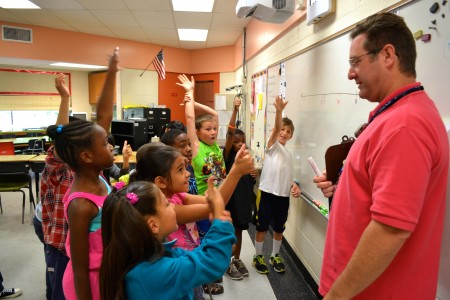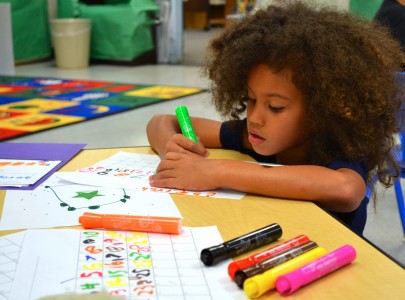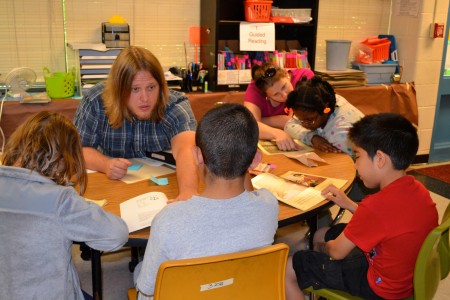
By Jo Mathis
AAPS District News Editor
The goal of the Ann Arbor Public Schools’ Summer Learning Institute is for everyone who walks in the door—whether that’s a student, teacher, parent, student volunteer, or intern—to learn something new.
Beyond that, it’s just a whole lot of fun.
“Kids come bounding in the door,” says SLI Principal Rose Marie Callahan. “It’s all about relationships and building up positive school experiences.”
The Summer Learning Institute is an annual program for incoming first and third graders who could use some extra help in math and reading before they go back to school in September.
The 211 children take part in fun, targeted activities in small group settings led by AAPS teachers, with the assistance of college students and community volunteers.

The five-week, Monday through Thursday program is held at Logan Elementary through July 30.
There is no tuition, and weekly parent workshops get parents involved as well. The program partners with AAPS Rec & Ed in the afternoon, so some students stay after school for summer camp or childcare. In addition, every SLI student with perfect attendance will receive a $50 voucher toward a Rec & Ed class.
Literacy Coordinator Kelly House said SLI gives students the opportunity to be in an environment that’s rich with literacy, and to be supported by a host of adults and other kids who deeply care about them.
“This is an opportunity for them to connect with other kids and have the quality education they get during the year extended through the summer,” she said.
The age groups—rising first and third graders—are chosen because these are crucial times to intervene and focus on math and reading skills.
“Those are critical transitions, from kindergarten to first and second to third. By providing additional support and targeted instruction to kids in those grades we can set them up for more success the following school year,” said House, noting that research suggests that it’s important for students to have caught up to grade level by third grade and stressing the importance of solidifying foundational skills by first grade.
Instruction is delivered in a variety of ways to match the needs and learning style of each student, said Callahan.

“Our kindergarten students have just gone through their first year of school, and this program is targeted for kids who were struggling in some areas,” said Callahan. “So to walk away from that schoolwork for the entire summer can make a frustrating, difficult start all over again. So the continuity and consistency of what we’re doing really helps them.”
She said teachers report students raising their hands, taking part in conversations, and understanding that struggle is part of the process of learning.
Pre- and post-assessments measure progress, but Callahan said success is obvious in the enthusiasm students show every day.
“They’re excited,” she said. “They’re just … in this.”

Be the first to comment